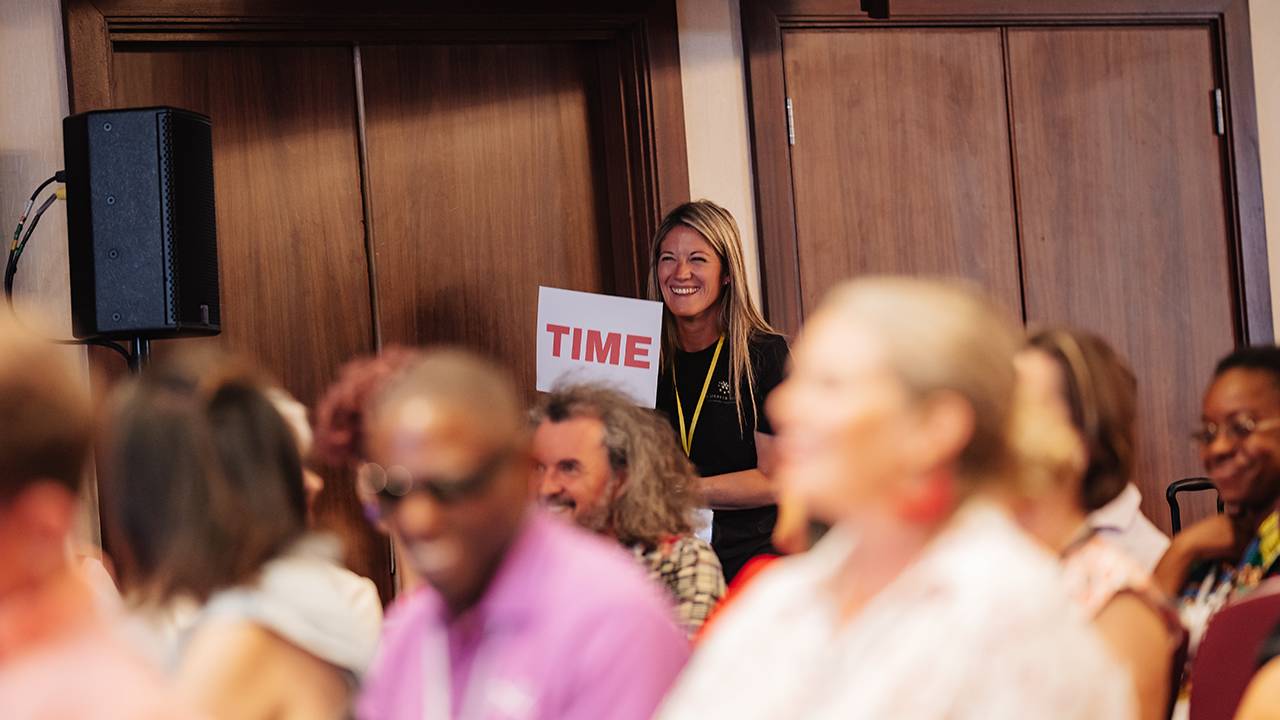The Next Evolution of Speaking: Can Speaker Bureaus Keep Up?

I’ve been thinking a lot lately about the future of the speaking industry and in particular, speaker bureaus. Bureaus have always been the trusted bridge between speakers and clients, helping organisations find the right voice for their event and helping speakers reach new audiences. But the landscape has changed time and again, and I’m not sure this time it will be quite as easy to ride the wave.
I was in the industry before LinkedIn and social media became a big thing. Yes, I’m that old. Few speakers had their own websites, and before showreels could be shared at the click of a button (think VHS tapes in the post). Back then, if you wanted to find a speaker, you called a bureau. When there were more events than speakers available, I kid you not, there once was a time. Bureaus were the go-to.
Then with prices coming down as the internet became more accessible, speakers began building their own websites. Suddenly they could market themselves directly, and that was a big shift. Social media arrived changed everything again. Clients could connect with speakers instantly, follow them, watch their content, and bypass the bureau altogether. Now, AI is the next disruptor, and it’s moving at a pace we’ve not seen before.
So far, bureaus have weathered each wave of change, adapting and finding ways to remain relevant. But I do wonder whether they’ll weather this one.
Traditionally, bureaus have served the client first, and that’s right. That’s their role. But if they are to stay relevant in this next phase, they will also need to strengthen their relationships with their speakers. Their real value now sits at the intersection of those two worlds. When a bureau truly understands its speakers, their content, tone, and audience fit - it can represent them more effectively and create genuine partnerships rather than transactional listings. That depth of understanding takes time, and it’s difficult to achieve when a bureau’s roster runs into the thousands. So perhaps we’ll see a shift towards smaller, specialist bureaus that focus on fewer speakers but know them inside out. A bureau that represents fifty speakers it understands completely could soon be far more valuable than one that lists five thousand it barely knows.
For clients, that could mean working with one bureau partner rather than sending out a brief to several, a bureau that knows and understands their business more deeply. For speakers, it could mean having representation that genuinely champions them rather than simply adds their names to a website or roster.
There could also be another shift ahead. If the industry continues to evolve in this direction, clients may start expecting much more from their bureaus. They may want partners who go beyond supplying a speaker and instead help shape the whole experience. That could mean being involved earlier in the process, advising on event design, themes, and desired outcomes, and playing a part in creating a more meaningful and lasting impact. And that brings me to something more delicate: trust.
The relationship between a speaker and a bureau should be based on mutual trust, transparency, and respect. Yet too often, I hear stories from speakers who have felt excluded, undervalued, or left out of key conversations about their own work. In some cases, there’s been a lack of openness about fees, or a sense that communication hasn’t flowed as clearly as it should. It can create uncertainty and erode confidence in what should be a strong professional partnership.
If bureaus want to remain relevant, they’ll need to re-examine how they treat their speakers. The days of opaque fees and vague communication are over. Transparency isn’t optional anymore; it’s expected. Speakers want and deserve to know what’s being charged, what’s being taken, and what’s being shared.
Trust flows both ways. Speakers also have a responsibility to honour the partnership and respect the client relationship a bureau has built. But that respect has to be earned and nurtured. When bureaus communicate clearly, pay promptly, and behave transparently, they build long-term loyalty that benefits everyone.
Perhaps this next phase will demand not just smarter systems and better technology, but a cultural shift too. A shift from gatekeeping to partnership. From secrecy to openness. From mass representation to meaningful collaboration.
Bureaus, like speakers, may also need to find their niche. Instead of saying, “We have hundreds of speakers,” imagine hearing, “We’re the bureau for leadership in tech,” or “We specialise in sustainability and innovation.” Clear positioning, just as I encourage speakers to develop, will be essential for bureaus too.
Technology will certainly play its part. AI can analyse client data, identify trends, and match speakers to audiences with impressive precision. It can handle repetitive admin and free agents to focus on building relationships. But what AI cannot replace is the human understanding that comes from conversation, empathy, and trust.
The bureaus that will thrive in the next decade are the ones that evolve from being booking agents to becoming trusted partners for both clients and speakers. They’ll build deeper relationships, act with transparency, and help create experiences that go far beyond a single keynote.
So, I find myself asking the question: will bureaus weather this next wave of change, or are we about to see an entirely new model emerge?
View Previous Newsletters

